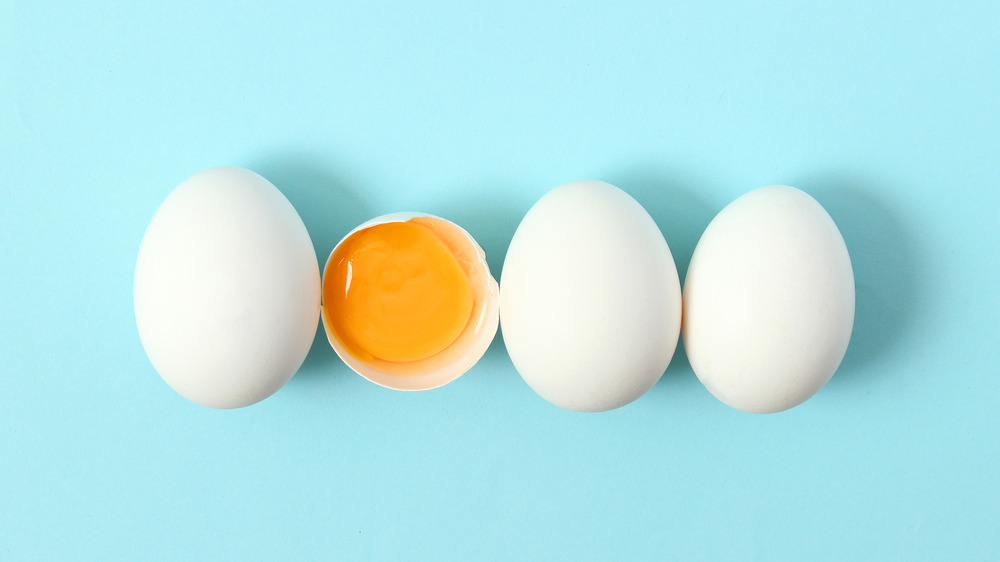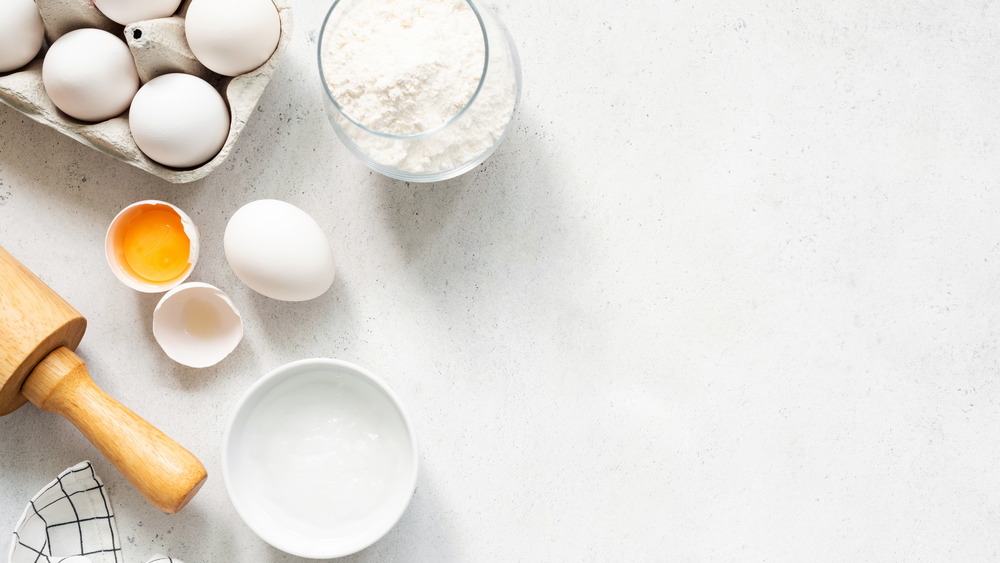Here's Why The Size Of Your Egg Matters When Baking
Have you ever been disappointed by the outcome of something you baked, even though you followed the recipe to a T? It's certainly a frustrating experience. However, the solution might be as easy as paying closer attention to the size of your eggs. Eggs play a crucial role in baking because they inform the structure, texture, and flavor of your treat — all very important things when it comes to enjoying food.
The two components of the egg, the yolk and the white, can also serve individual purposes. Eggs yolks are rich in fat and therefore provide richness and a smooth texture, as well as help to bind ingredients. Because of their light and airy texture, eggs whites can be used as a leavening agent in place of yeast or baking soda. (via Kitchn). Too much or too little egg can also impact the liquid content of your baked goods — too much and you'll have a runny consistency; too little, and you'll feel like you're chewing a brick.
When you consider the importance of eggs in a recipe, it's easy to see why their size might have a great impact on the outcome. Here's everything you need to know choosing the right eggs for your recipe — for a delicious result, every time.
Bigger is better
If your recipe doesn't indicate the size of eggs you should be using, go for larger eggs. Jocelyn Drexinger, baking expert for Nellie's Free Range Eggs and owner of Mint + Mallow Bakery tells Real Simple that the majority of recipes use large eggs — most recipes won't even mention the size of the eggs under the assumption that large will be used.
If you don't have large eggs on hand, don't panic. Drexinger says if you're working with smaller eggs, whisk your eggs together using one more than what your recipe calls for. "Then, use a kitchen scale to measure 50 grams of whisked egg to substitute for each large egg," she explains. "If you don't have a scale, you can also measure the whisked eggs in a measuring cup, using 1/4 cup of the blended liquid eggs to replace each large egg in your recipe."
Bon Appetit also offers an important tip: the more eggs in a recipe, the more size will matter. "As you add more eggs, that difference in weight — ~2 ounces for a large compared to ~2 1/4 ounces for an XL and ~2 1/2 for a jumbo — is amplified," the outlet advises. "When a recipe calls for 4 eggs, for example, that small ¼-ounce discrepancy is suddenly a whopping 1 ounce."
The size of your eggs is often just as important as the number of eggs you're using. When baking, consider the intended texture, shape, and flavor of your final outcome, and adjust your egg ratio accordingly.

